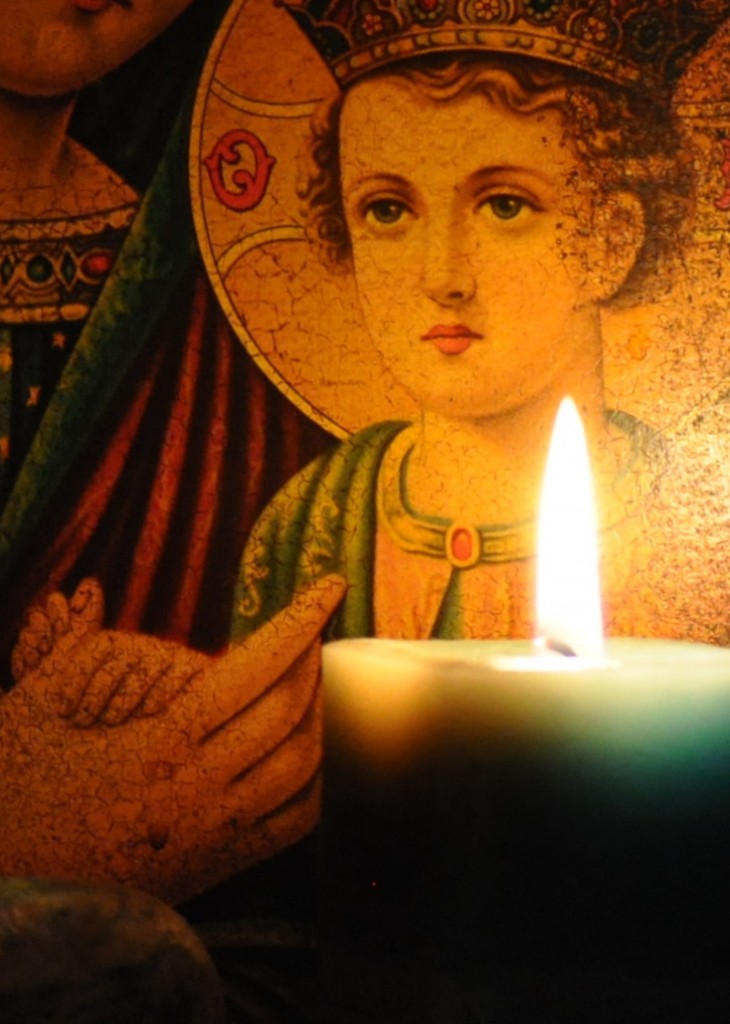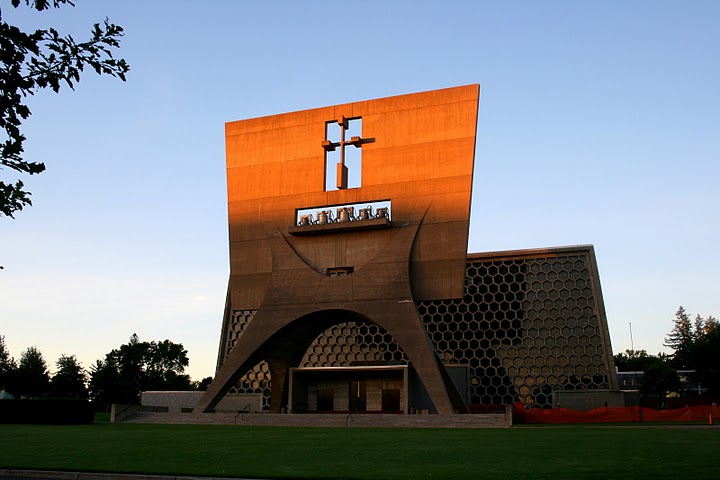A disciple once came to Abba Joseph, saying, “Father, according as I am able, I keep my little rule, my little fast, and my little prayer. And according as I am able, I strive to cleanse my mind of all evil thoughts and my heart of all evil intents. Now, what more should I do?” Abba Joseph rose up and stretched out his hands to heaven, and his fingers became like ten lamps of flame. He answered, “Why not be totally changed into fire?”
–from Prayer by Richard Foster.

I write and read daily with waves of plainchant playing in the background. For hours, the single lines of melody, each carefully crafted in set constellations of tones, flow around the room and order my distraction. The soaring and dipping, softer, then louder, offers a gentle rhythm for my thoughts and feelings to gather. A sonic anchor…an audio lighthouse in the storm of words and ideas.
As I listen, a familiar melody begins. The words are in Latin, so I’m not certain how I know it. Closing my eyes and letting the tune bring memory, I find myself in a dark church, before dawn, with only one candle illuminating the singer:
Hæc nox est,
in qua, destrúctis vínculis mortis,
Christus ab ínferis victor ascéndit.
Nihil enim nobis nasci prófuit,
nisi rédimi profuísset.
O mira circa nos tuæ pietátis dignátio!
O inæstimábilis diléctio caritátis:
ut servum redímeres, Fílium tradidísti!
This is the night
when Jesus Christ broke the chains of death
and rose triumphant from the grave.
What good would life have been to us,
had Christ not come as our Redeemer?
Father, how wonderful your care for us!
How boundless your merciful love!
To ransom a slave you gave away your Son.

And I remember…all the Easter vigils through the years where the Exsultet, the proclamation of Easter, was sung, ancient words to an ancient melody. Across centuries and languages, the music connects me to the great cloud of witnesses.
The composers of the texts and music of plainchant believed that what you hear, over and over, affects your spirit. Music could inspire prayer and worship. Music could help nurture virtue or inspire goodness. Or when poorly composed, it could cause spiritual dissonance. The music and the texts were paired, with words emphasized by tone, giving them multi-layered meaning.
To be in tune was more than a simple delight to the senses, but was bodily participation in the throne room of glory, where the praise is sung with unending beauty to unending Beauty– always surprising in the best way, always welcoming, always joyous at one more joining the song. Worship inviting worship.

As I’ve pondered the word theme for this year and the habits rising as un-resolutions in the past three months, a quiet, deep river flows under what the Lord has been teaching me in writing, reading, prayer, ministry:
Worship.
And I ask. What is worship, Lord?
One day I hiked up a hill near my home, and if you know the hills in Seattle, there are a few brutally tall ones worthy of the term “hike” rather than simply “walk.” Feeling like I was on a draw bridge opening steeper and steeper, all I could see was pavement, the crest of the hill above me and the sky.
And then, the last painful steps, and I reached the top and the world opened to the Sound and the Olympics in snow-covered glory, wringing quick tears and an audible “Thank you, God” whispered in gasping awe.

It was the mountains and the sun that day, but it was more. Through them, beyond them, and completely beyond me.
And the Lord said, “Susan, that, that, what you just felt, what escaped in tears and praise, is worship.”
Even more, the pleasure I sensed from God in that moment was not because worship is his due (which it is), but because he delights in sharing joy and beauty and love, and longs for us to join with him in that delight.
And the worship of God is life and health for us.
When we whisper worship to God, we are not lost in worship of what or who cannot be, is not, Life.

On a dusty road, two disciples learned about worship. Their fears and questions and doubts and frustrations were little gods clamoring for attention, blinding them to their traveling companion. Their hearts longed to worship as Jesus dusted off their hope and quenched their thirst, preaching the Word to them even as they didn’t recognize him. And then their eyes opened when he took, blessed and broke the bread for them, offering once again his life and presence to them.

“Did not our hearts catch fire, did they not burn while he spoke to us on the way?”
Worship can well up in our hearts at the most unexpected moments. On a dusty road to Emmaus, or after a trudge up a steep hill in life or spirit.
This year I’m praying to worship. To seek God and offer God worship in all my activities. To be open and ready to worship at any moment.
To gradually catch fire.

Four ways of cultivating worship which have gently seeped into my life:
1. Paying attention to what I see and what I listen to. I’ve written about how screen media can be a challenge for me, robbing me of attentiveness, time, and energy. It is now 3 months since I’ve watched TV and I’ve seen only a few movies in that time. I don’t share this as a judgment against watching media. For me, the perennial question has been why I watched it and whether it was truly giving me rest. I decided I’d try giving the time to other pursuits. Now I would never go back.
Music is the same. I’m consciously choosing music that feeds my spirit–not simply “praise music,” though I listen to that at times–but chant, classical, Celtic, and music with content that helps me focus on God and life. A wonderful help for this is Pandora Radio and my two favorite channels Gregorian Chant and John Dowland, a 16th century composer. For praise music, I enjoy this channel. Some days, I turn off the soundtrack and just listen to the birds. (And the sparrows are particularly noisy now, even with nesting material in their beaks!)
2. Paying attention to how I speak. The past two years I’ve spilled a lot of words on the challenges of writing and academic study. Good words. Healing words. (Sometimes melodramatic words.) But now, I’m approaching the reading and writing as an act of worship–simply offering it to God and see what he does. The words I use to describe writing the dissertation matter. It is not the end of bouts of writer’s block or the challenges, but I simply no longer wish to live or speak in opposition to this life and task God has set before me.

3. The Liturgy of the Hours. This has been part of my practice for over 10 years, but I now find myself (with more time, energy, and ability to focus) consistently praying the Office of Readings and Compline as bookends of my day. One day a week, I’m stopping at regular times and praying the smaller Hours.
Practices of prayer and worship require intentional attention, but not so much by gritting teeth and setting goals. Me-focused plans for discipline often get in the way.
The practice simply scooted into my routine without any jostling or fanfare.

Each Hour is a collection of psalms, prayers, and a scripture reading, taking 5-15 minutes to pray through. The Office of Readings also includes a selection from Christian writers, preachers, and theologians, from the past 20 centuries. These are not dry theology, but fiery and prayerful snippets from the lives of people whose faith and love for Jesus still influence the church today.
4. The Rhythm of the Church Year. Following the Liturgy of the Hours and being a part of a liturgical church that has services during the week brings me into awareness of God’s time and the cloud of witnesses who have lived before me, who loved Jesus before me, who worship now at the Throne, and whose lives give the church a legacy of love in Christ.

The first time I felt shifted from calendar time to liturgical time happened when I lived at St John’s University in Minnesota, a Benedictine monastery, where the monks gather for prayer 5 times a day to the ringing of bells. (The bells are a little bit of heaven on earth–you can hear them here. I often stood under the tower to feel them ring.) One day, after a few months, I found myself thinking in liturgical time: Today is Wednesday of the 2nd week of Ordinary Time, rather than January 19th.
Once I graduated and left St John’s, I found that gathering for Sunday worship alone was not enough to maintain that sense of God’s time. The Liturgy of the Hours at home and gathering at church once or twice during the week for prayer or communion is an important thread for me connecting Sunday to Sunday, season to season, that I keep coming back to. (I don’t have bells calling me to prayer, but I do have a bell alarm on my cell phone!)
I would love to hear what helps you nurture the habit of worship.
Together at His throne,
Susan

